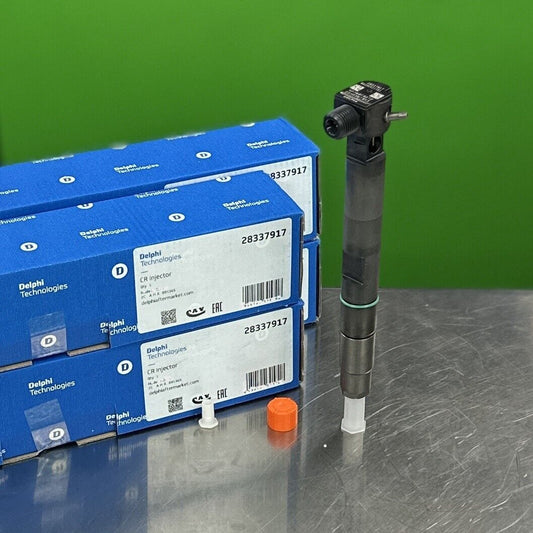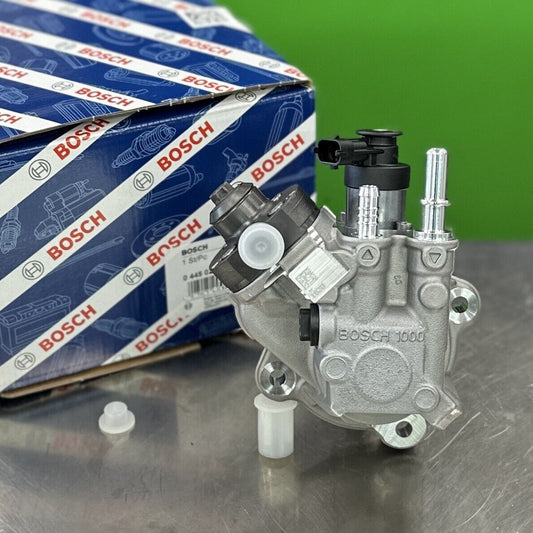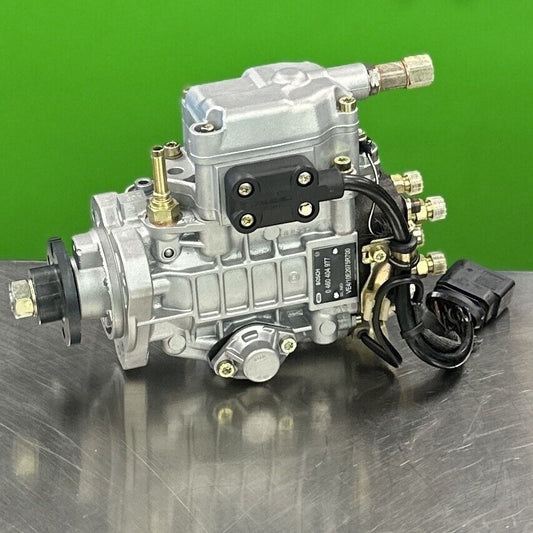How Diesel Engines Perform in Freezing Temperatures in North Dakota
When it comes to the performance of diesel engines in the freezing temperatures of North Dakota, the challenges are as chilling as the weather itself. The harsh winter conditions in this region can put diesel engines to the ultimate test, requiring robust solutions to ensure they keep running smoothly even when the mercury drops well below zero.
Imagine a scenario where the icy grip of winter has frozen everything in its path, and you need your diesel engine to start without a hitch. This is where the importance of cold weather starting strategies comes into play. Technologies such as block heaters and glow plugs are like the engine's warm blanket, ensuring a reliable start even in the coldest of mornings.
One of the nightmares for diesel engine owners in freezing temperatures is fuel gelling. This phenomenon can clog fuel filters and disrupt engine performance. However, with the right additives and storage practices, fuel gelling can be prevented, keeping your engine running smoothly throughout the winter.
When it comes to winter maintenance tips for diesel engines in North Dakota, diligence is key. Regular fuel filter changes, battery checks, and coolant inspections are essential to keep your engine in top condition despite the freezing temperatures outside.
To combat the extreme cold, heating systems for diesel engines are crucial. Coolant heaters and oil pan heaters work tirelessly to ensure that your engine stays at its optimal operating temperature, even when the world around it is covered in a blanket of snow.
The impact of cold weather on diesel performance cannot be underestimated. From reduced efficiency to potential damage, freezing temperatures can wreak havoc on diesel engines. By understanding these effects and taking proactive measures, you can ensure that your engine performs at its best even in the depths of a North Dakota winter.
Cold Weather Starting
When it comes to starting diesel engines in the frigid temperatures of North Dakota, the challenges can be daunting. The cold weather can cause diesel fuel to thicken, making it harder for the engine to ignite. To combat this issue, various strategies and technologies are employed to ensure reliable starting even in freezing conditions. Block heaters are commonly used to warm the engine block and facilitate easier starting. These heaters keep the engine at a moderate temperature, preventing the oil from becoming too viscous. Additionally, glow plugs are utilized to preheat the combustion chamber, aiding in the ignition process. Moreover, using winter-grade fuel that is specifically formulated for lower temperatures can make a significant difference in cold weather starting performance.
Fuel Gelling Prevention
When it comes to diesel engines in North Dakota's freezing temperatures, one of the major concerns is fuel gelling. This phenomenon occurs when the paraffin wax present in diesel fuel solidifies in cold conditions, clogging fuel filters and potentially causing engine stalling. To prevent fuel gelling and ensure smooth engine operation during winter, various additives are available in the market. These additives modify the crystallization process of paraffin wax, lowering the fuel's cold filter plugging point (CFPP) and preventing gelling. Additionally, using winter-grade diesel fuel with a lower cloud point can also help in reducing the risk of fuel gelling.
In addition to using additives and winter-grade fuel, proper storage of diesel fuel is crucial in preventing gelling. Storing diesel fuel in insulated tanks or areas protected from extreme cold can help maintain its temperature above the point where gelling occurs. Regularly monitoring and maintaining the storage conditions of diesel fuel is essential to ensure its quality and prevent any issues related to fuel gelling.
Maintenance Tips for Winter
When it comes to maintaining diesel engines in the harsh winter conditions of North Dakota, proper care is essential to ensure optimal performance and longevity. One crucial aspect of winter maintenance is regular fuel filter changes to prevent clogging and ensure clean fuel flow to the engine. Additionally, checking the battery health is vital as cold weather can put extra strain on the battery, leading to starting issues. Inspecting the coolant levels and quality is also important to prevent freezing and ensure efficient engine operation.
Another key maintenance tip for winter is to use winter-grade diesel fuel that contains additives to prevent fuel gelling. Proper storage of diesel fuel is essential to avoid contamination and maintain its quality in cold temperatures. Storing fuel in a clean, dry, and temperature-controlled environment can help prevent issues related to fuel quality and performance during winter.
Regular inspections of the engine's heating systems, such as coolant heaters and oil pan heaters, are recommended to ensure they are functioning correctly. These heating systems play a crucial role in keeping the engine at optimal operating temperatures in extreme cold weather, preventing issues like cold starts and poor performance.
Furthermore, conducting thorough checks on the engine's belts, hoses, and electrical connections can help identify potential issues before they escalate in the cold winter months. Addressing any worn or damaged components proactively can prevent unexpected breakdowns and costly repairs down the line.
In conclusion, implementing these maintenance tips for winter can help diesel engine owners in North Dakota navigate the challenges posed by freezing temperatures. By staying proactive and following a comprehensive maintenance routine, diesel engines can continue to perform reliably and efficiently even in the harshest winter conditions.
Heating Systems for Diesel Engines
When it comes to keeping diesel engines running smoothly in the bitter cold of North Dakota, heating systems play a crucial role in maintaining optimal operating temperatures. These systems are designed to combat the frigid conditions that can cause diesel engines to struggle. One common heating system used is the coolant heater, which warms the engine coolant to ensure that the engine starts and runs efficiently even in subzero temperatures. Additionally, oil pan heaters are employed to keep the engine oil at the right viscosity, preventing it from thickening and causing damage to the engine components. These heating systems act as a lifeline for diesel engines, ensuring they are ready to perform when needed most.
Impact of Cold Weather on Diesel Performance
When the icy grip of winter tightens its hold on North Dakota, diesel engines face a formidable foe in the form of freezing temperatures. The impact of cold weather on diesel performance is profound, affecting everything from starting reliability to overall efficiency. As the mercury plunges, diesel engines can experience reduced power output, increased fuel consumption, and potential operational issues.
One significant challenge posed by cold weather is the thickening of diesel fuel, leading to potential fuel gelling. This phenomenon occurs when the paraffin wax in diesel fuel solidifies in low temperatures, clogging fuel filters and impeding proper engine function. To combat fuel gelling, additives known as anti-gel agents are commonly used. These additives alter the crystallization process of the wax, preventing it from solidifying and ensuring smooth fuel flow even in freezing conditions.
Moreover, the cold weather can also impact the lubrication properties of diesel engine oils. As temperatures drop, the viscosity of the oil increases, making it harder for the engine components to move freely. This can result in increased wear and tear on the engine, potentially leading to long-term damage if not addressed. Using winter-grade oils with lower viscosity levels can help mitigate this issue and ensure proper lubrication even in extreme cold.
Additionally, the battery performance of diesel engines can be severely affected by cold weather. Frigid temperatures can reduce the battery's ability to provide the necessary starting power, leading to potential starting issues. Regular battery checks and maintenance are essential in winter to ensure optimal performance and avoid being stranded in the cold.
Furthermore, the overall efficiency of diesel engines can be compromised in freezing temperatures. Cold weather can cause the engine to take longer to reach its optimal operating temperature, leading to increased fuel consumption and reduced efficiency. To counteract this, preheating systems such as coolant heaters and oil pan heaters are utilized to warm the engine before starting, improving fuel combustion and overall performance.
In conclusion, the impact of cold weather on diesel performance in North Dakota is significant and multifaceted. By understanding the challenges posed by freezing temperatures and implementing appropriate solutions such as anti-gel additives, winter-grade oils, battery maintenance, and preheating systems, diesel engine owners can ensure reliable operation and optimal performance even in the harshest winter conditions.
Frequently Asked Questions
-
Q: How do diesel engines perform in freezing temperatures?
A: Diesel engines can face challenges in freezing temperatures, impacting their starting reliability and overall performance. However, with proper winter-grade fuel, block heaters, and glow plugs, diesel engines can be optimized to start efficiently even in the coldest conditions.
-
Q: What is fuel gelling and how can it be prevented?
A: Fuel gelling is a common issue in cold weather where diesel fuel solidifies, clogging fuel filters and affecting engine operation. To prevent fuel gelling, using additives and ensuring proper storage of diesel fuel are essential practices during winter.
-
Q: What maintenance tips are crucial for diesel engines in North Dakota winters?
A: Winter maintenance for diesel engines includes regular fuel filter changes, battery checks to ensure proper starting power, and inspecting coolant levels to prevent freezing. These practices help maintain engine performance during extreme cold.
-
Q: What heating systems are used to keep diesel engines operating optimally in cold weather?
A: Diesel engines utilize various heating systems like coolant heaters and oil pan heaters to maintain optimal operating temperatures in freezing conditions. These systems help prevent engine damage and ensure efficient performance.
-
Q: How does cold weather impact diesel engine performance?
A: Freezing temperatures can affect diesel engine efficiency by causing fuel thickening, reduced battery capacity, and slower engine warm-up times. Implementing proper cold weather strategies and maintenance routines can mitigate these effects and ensure reliable engine operation.



